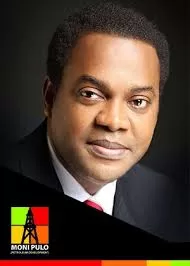
DONALD DUKE SLAMS TINUBU FOR BUYING NEW JET, YACHT WHEN NIGERIANS ARE HUNGRY
A former of Governor of Cross River State, Donald Duke, on Friday, condemned the purchase of a presidential jet and yacht when Nigerians are hungry.
According to Duke, it is a failure of leadership for President Bola Tinubu to make this purchases, when Nigerians are going through economic crisis.
Duke stated this while speaking on Inside Sources with Laolu Akande, a socio-political programme aired on Channels Television.
Duke said, “There is no glamour in saying your people are going through hard times. It’s a failure of your leadership. If I’m the head of a family, I want my family to have everything. I don’t want life to be difficult for them.
“If life is difficult then I feel I’ve failed to provide for them or do the things I ought to have done. I’d ask him (Tinubu) to see the Nigerian nation as his family. What is good for his family is good for the nation.
“Buying a new aircraft or yacht or living large is a failure. You can’t have kids who are hungry and you are living lavishly, going to parties and wearing the biggest agbada.”
Duke said the recent #EndBadGovernance nationwide protests by hungry Nigerians showed that the President has not been a good father to Nigerians.
The former governor said, “A protest is like your kids coming to tell you that ‘Daddy, I am not happy with you. You have failed to do this and do that for me’.
“I’d ask him (Tinubu) to rethink a number of things that are going on and test his policies. The policy of floating the currency was a mistake because it wasn’t thought through.
“The largest pressure on the Nigerian currency is the importation of fuel, and the way it is being done, it is fuelled by corruption. So, we are paying the price for it.”
Duke tasked the President to hold security agencies responsible, reform the judiciary, and address the economy with local indigenous solutions, far from those of the Bretton Woods system.
 Premium News
Premium News